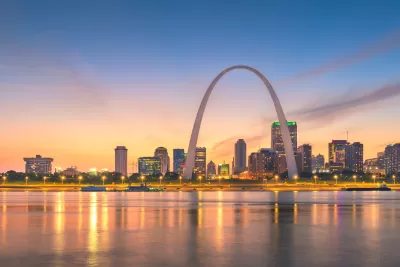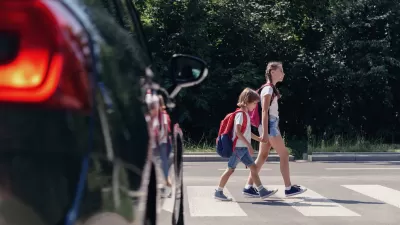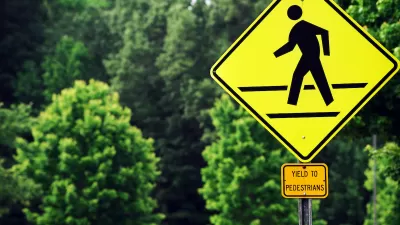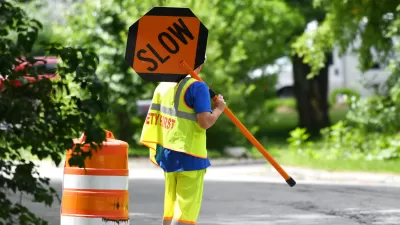The city is creating its first Department of Transportation and using hundreds of millions in federal funding to launch road safety projects.

In the first of a multi-part series, Streetsblog USA’s Kea Wilson explains how St. Louis, Missouri plans to spend $300 million in street safety infrastructure funds aimed at reducing traffic deaths and making the city’s dangerous streets safer for people walking and biking.
Like other cities, St. Louis is benefiting from millions in federal infrastructure and transportation funding from the American Rescue Act and other federal programs. “After decades of disinvestment in sustainable mobility, it’s fair to say that the Jones administration is attacking the problems of car dependency on a number of policy fronts, too, developing its first-ever transportation and mobility plan while simultaneously overhauling its land use and zoning plans.”
Meanwhile, “The regional light rail network, Metrolink, is in the final stages of planning the first rail route to connect the overwhelmingly Black north side and with the central corridor and the southern half of the city, bridging the infamous Delmar Divide; the Missouri Department of Transportation is even talking about building its first-ever protected bike lane on a state-owned road.”
Wilson explains that the city, which has lost hundreds of thousands of residents since the 1950s, struggles with understaffing and an outdated ‘ward capital system’ for distributing transportation funding. It is now in the process of establishing its first Department of Transportation. “The new projects still need to be perfected, nevermind actually built. The city will need to contend with a state government that’s investing far more money into widening 250 miles of a single interstate than traffic-calming the dangerous roads within St. Louis that it maintains.”
FULL STORY: Deep Dive: St. Louis Launches $300M Sea Change for Sustainable Transportation

Alabama: Trump Terminates Settlements for Black Communities Harmed By Raw Sewage
Trump deemed the landmark civil rights agreement “illegal DEI and environmental justice policy.”

Planetizen Federal Action Tracker
A weekly monitor of how Trump’s orders and actions are impacting planners and planning in America.

The 120 Year Old Tiny Home Villages That Sheltered San Francisco’s Earthquake Refugees
More than a century ago, San Francisco mobilized to house thousands of residents displaced by the 1906 earthquake. Could their strategy offer a model for the present?

BLM To Rescind Public Lands Rule
The change will downgrade conservation, once again putting federal land at risk for mining and other extractive uses.

Indy Neighborhood Group Builds Temporary Multi-Use Path
Community members, aided in part by funding from the city, repurposed a vehicle lane to create a protected bike and pedestrian path for the summer season.

Congestion Pricing Drops Holland Tunnel Delays by 65 Percent
New York City’s contentious tolling program has yielded improved traffic and roughly $100 million in revenue for the MTA.
Urban Design for Planners 1: Software Tools
This six-course series explores essential urban design concepts using open source software and equips planners with the tools they need to participate fully in the urban design process.
Planning for Universal Design
Learn the tools for implementing Universal Design in planning regulations.
Clanton & Associates, Inc.
Jessamine County Fiscal Court
Institute for Housing and Urban Development Studies (IHS)
City of Grandview
Harvard GSD Executive Education
Toledo-Lucas County Plan Commissions
Salt Lake City
NYU Wagner Graduate School of Public Service





























